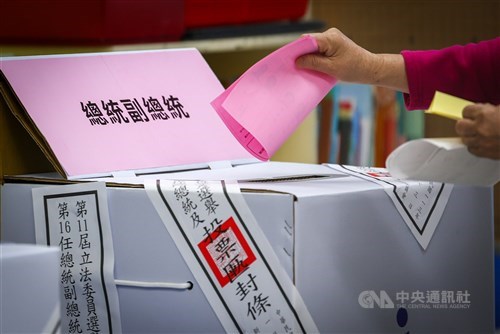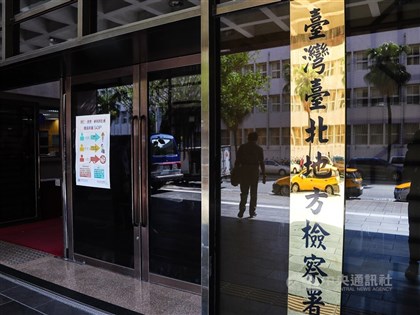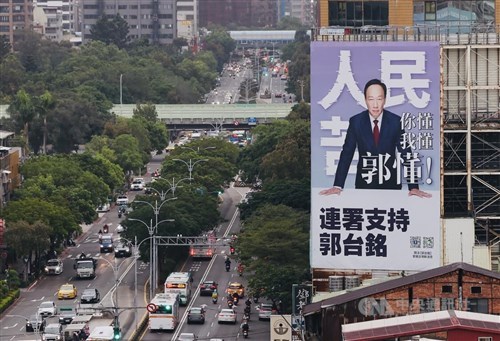ELECTION 2024 / Taiwan's manual ballot counting ensures transparency: Observers
01/14/2024 10:04 PM
Taiwan's manual method of counting votes, where poll workers read out each ballot while displaying them for public scrutiny, contributes to transparency and contrasts favorably with more high-tech vote counting methods, election observers said.
(Full text of the story is now in CNA English news archive. To view the full story, you will need to be a subscribed member of the CNA archive. To subscribe, please read here.)
More in ELECTION 2024
-
![5 suspects, including association head, indicted for election law breach]() 5 suspects, including association head, indicted for election law breachThe head of a new immigrant association and four other people have been indicted for suspected violations of Taiwan's election law as well as the Anti-Infiltration Act, according to the Ciaotou District Prosecutors Office in Kaohsiung.03/07/2024 08:11 PM
5 suspects, including association head, indicted for election law breachThe head of a new immigrant association and four other people have been indicted for suspected violations of Taiwan's election law as well as the Anti-Infiltration Act, according to the Ciaotou District Prosecutors Office in Kaohsiung.03/07/2024 08:11 PM -
![Taipei prosecutors indict 7 in Terry Gou signature-buying case]() Taipei prosecutors indict 7 in Terry Gou signature-buying caseTaipei prosecutors on Tuesday indicted seven people for stealing ID numbers from e-commerce sites to help business tycoon Terry Gou's (郭台銘) presidential petition drive last year.03/05/2024 05:52 PM
Taipei prosecutors indict 7 in Terry Gou signature-buying caseTaipei prosecutors on Tuesday indicted seven people for stealing ID numbers from e-commerce sites to help business tycoon Terry Gou's (郭台銘) presidential petition drive last year.03/05/2024 05:52 PM -
![Pingtung Council speaker indicted in Terry Guo signature buying case]() Pingtung Council speaker indicted in Terry Guo signature buying casePingtung County Council Speaker Chou Tien-lun (周典論) has been indicted on suspicion of buying signatures for business tycoon Terry Gou's (郭台銘) presidential run, the Pingtung District Prosecutors Office said Wednesday.02/21/2024 09:14 PM
Pingtung Council speaker indicted in Terry Guo signature buying casePingtung County Council Speaker Chou Tien-lun (周典論) has been indicted on suspicion of buying signatures for business tycoon Terry Gou's (郭台銘) presidential run, the Pingtung District Prosecutors Office said Wednesday.02/21/2024 09:14 PM
Latest
-
Society
Taiwan releases forced labor prevention guide for businesses
02/24/2026 09:39 PM -
Politics
KMT to propose legislative oversight for advanced chip technology exports
02/24/2026 09:20 PM -
Society
Phone, text scam attempts fall 36.97% year-on-year in Taiwan
02/24/2026 09:07 PM -
Science & Tech
Google to launch budget Pixel 10a in Taiwan March 5
02/24/2026 08:55 PM -
Society
Free COVID vaccination extended to April 30 ahead of possible surge: CDC
02/24/2026 08:29 PM


